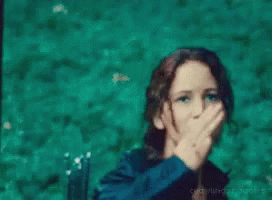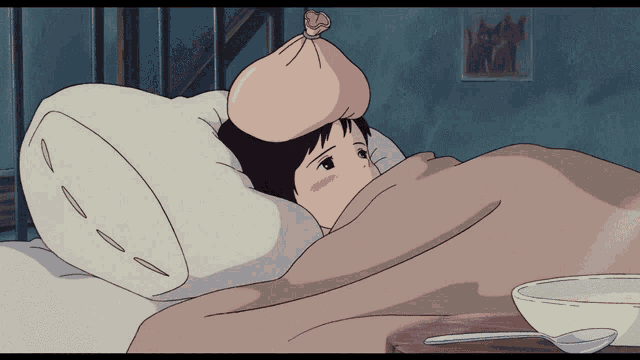Ok.
Today in my nerd section, let’s open a chapter on Quantum Entanglement. I kept a section for it in my commonplace book a few months back, among other rabbit holes and this morning, at an ungodly hour, I stumbled onto a new analogy that got me way too excited (sans caffeine tau, sambil baring half-awake I asked "my friend" to continue its teaching on physics concept).
So come. Let’s cozy up, nerd out, and sip something warm. It’s 6 a.m., still dark, La Niña winds are here, and I just washed my home sweater and robe so I’m cold in my comforter, under-caffeinated, and yearning for intellectual cuddles. I’m only going to touch on quantum entanglement, not quantum mechanics. We’re keeping it simple pagi J'maat.
-
The big Q:
Quantum entanglement is when two particles become so deeply connected that they behave like one system, even when separated by distances. Whatever happens to Particle A is instantly reflected in Particle B, across a room, a continent, or a galaxy. Not because they “send messages,” there are no messages to send.
They are not two separate systems.
They are one system in two places. Change one, the other shifts immediately, so, distance becomes irrelevant.
Here's the analogy:
Quantum entanglement is like one story split into two books and placed in different locations. Before anyone opens them, the pages aren’t fully written, just possibilities. But the moment you read a page in Book A, the story becomes real there, and instantly the matching page in Book B becomes real too, perfectly aligned, no matter how far apart they are. They behave like one narrative because, underneath it all, they are one story, not two.
Core idea: Separation in space does not equal separation in state.
We use this phenomenon in cutting-edge tech; quantum computers, ultra-secure encryption, and experimental physics labs. It’s real, measurable, and very much not woo-woo. Go dig your own rabbit hole if you rajin.
-
Quantum Entanglement for Writers:
But I’m a romantic kan. I love this concept because I love stories and possibilities. I watch and read so many fictions related to this concept, and I'm just putting a scientific label on it. For fun, because I'm that nerd.
In life, when two people share a deep bond, they can feel emotionally, psychologically, or energetically entangled, even without being in the same place, timeline, or reality. A bond that exists beyond logic or proximity. Felt in the body. Seen in dreams. Known in the gut. Recognized in repeating patterns, synchronicities, and those eerie instincts we can’t explain. Like a karmic echo or one story split into two bodies.
And that to me is how I can build fiction out of science. Tapi I malas, I suka baca fiction, tak suka tulis fiction. Jap lagi I call daddy Haruki, tapi dia dah byk tulis fictions related to parallel worlds, mirroring lives, split selves, synchronised fates, and invisible bonds across space/time ni kan. Hmm.
-
Questions to explore:
- Can you entangle more than two particles?
Yes. There is such a thing as multipartite entanglement, where more than two particles share a single interconnected state. It’s possible, but becomes increasingly difficult to create and control as the number grows. Think of it as the Cloud Atlas edition of entanglement; many threads, one fate. It will be a complex emotional field. - If love is an analogy for quantum entanglement, what happens when people fall out of love?
In physics, entanglement doesn’t simply fade, it must be disentangled or "broken", returning the system to two independent states. So falling out of love isn’t the disappearance of connection; it is the collapse of possibility. And if two people recalibrate, heal, and meet again, they can form a new entanglement but it will never be the original wavelength. It becomes a new system, shaped by its history, memories, and baggage. (Physics doesn’t spare us, ha) - If I don’t observe the entanglement, does the bond still exist, or is it only real once I notice it? Yes. In quantum theory, entanglement exists even without observation. Measurement does not create the bond, it only reveals the correlation that was already there. So in the love analogy; some connections are real long before we notice them. Observation doesn’t create the bond, it simply makes it undeniable. You can't unsee it.
- Is there such thing as free will then?
Back to the “one book split into two” analogy: the story exists as possibilities until you, the observer, open it. The moment you read a page in Book A; make a choice, poke the system, that page “collapses” into reality. Instantly, the matching page in Book B reflects the same outcome. The two separate books are now fully written, yet they tell the same underlying story. Entanglement in action: one system, two places, perfectly correlated, no matter the distance.
Almost good analogy, kan.
-
Anyway, we are deep in Alice's Wonderland now. I have more, tapi it is Friday.
Happy weekend, and thanks for taking a trip with me.









